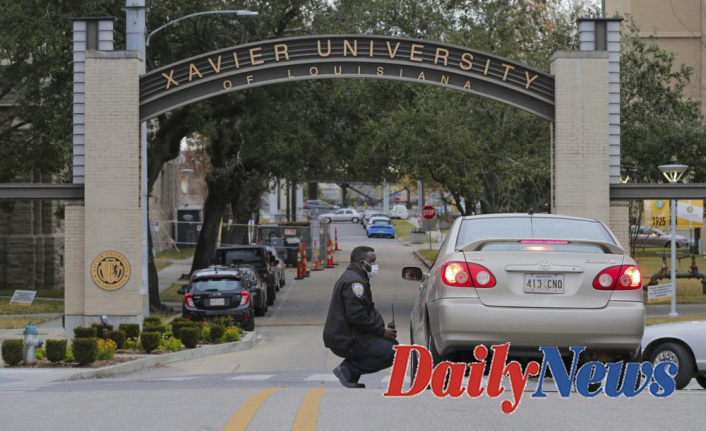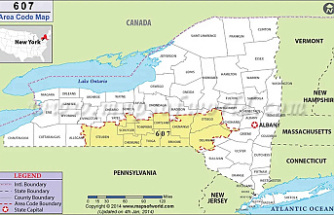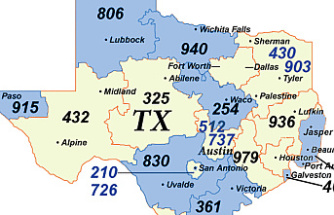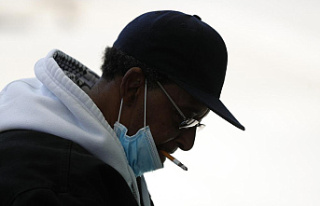Since January, more than a third America's 101 historically Black colleges have received threats to detonate bombs on campus. The majority of these threats were made during Black History Month. These threats are being investigated as hate crime.
Federal law enforcement agencies stated that they are working hard to arrest the 59 suspects at a congressional hearing on Thursday. According to the FBI, all six are minors.
Ryan Young, the executive assistant director of FBI intelligence branch, stated that investigators have found "one person" and "a small group," though some threats could have been copied crimes.
Young stated to the House Oversight Committee that "our intention is to bring them to justice."
This week, the Biden administration announced a number of actions to address threats. Wednesday's guidance was issued by the Education Department to assist colleges in navigating threats and obtaining assistance from federal agencies. Kamala Harris, Vice President of the United States and an alumna from Howard University in Washington, has also informed colleges that they are eligible to receive grants for schools recovering from violence.
Although no explosives were found, students claim that the threat to their lives has been a constant worry. Students feel anxious and uneasy after the threats led to evacuations and lockdowns at night.
Emmanuel Ukot is the president of the student government of Xavier University of Louisiana. He said tensions are high after two threats to the school of over 3,000 students. He said that some students are afraid to return to school and others have sought out mental health services.
He stated that the triple impact of COVID-19 and ongoing racial reckoning in this country, as well as the bomb threats on campuses at HBCU campuses, had a lasting impact on students.
Since Jan. 4, Howard University has been threatened with at least four times. Officials gave students a day off to help their mental health after the second threat.
"The additional stress and sometimes paranoia that students and faculty have experienced in the following years cannot be overstated," stated Kylie Burke, president Howard's student government.
The threats started in January and picked up during Black History Month when 18 colleges were all threatened. One of the most recent threats was Monday's attack on Morehouse College in Atlanta, where it was forced to close its doors due to a bomb threat.
Young of the FBI stated that the majority of threats were made via phone. However, a few came in email or other online messages. He said that some threats made with encryption technology have been difficult to trace for investigators.
Young refused to give further information on the six juveniles but said that they "know they're under investigation."
The FBI has 31 field offices, as well as other units such cyber crime divisions.
These threats recall a history of acts of violence against Black Americans, including bombings.
The 1963 bombing at an Alabama church that left four Black girls dead was recalled by lawmakers of the Oversight Committee. Another incident was the 1999 attack on Florida A&M University. This school is historically Black. Although two pipe bombs were used in the explosion, no one was hurt.
Chair of the committee, Democratic Rep. Carolyn Maloney said that these reprehensible threats to Black institutions echo the tactics used by the Ku Klux Klan decades ago in trying to instill terror among the Black community."
Both parties' lawmakers urged authorities to speed up the investigation and expressed dismay at the inability to arrest students and faculty.
Clay Higgins, Republican from Louisiana, stated that the committee was looking for assurances from FBI that arrests will be made. "There shouldn't be any systemic fear at America's colleges and universities."
FBI and Homeland Security officials stated that they continue to investigate and have provided training to assist HBCUs in responding to threats.
Michelle Asha Cooper, acting assistant education secretary, stated to lawmakers that HBCUs would need assistance in recovering from the threats. These have diverted emergency funds and put an increased burden on campuses mental health systems.
She stated that "Campus leaders don't have the resources they need to respond to ongoing threats in a timely manner, and aren't fully aware of federal resources."
Last week, the House passed a resolution condemning threats and affirming support to the schools. Democrats are calling for Congress to do more. Some have called for legislation that would raise funding for HBCUs for security and infrastructure.
The hearing heard from students who echoed the need for more support. Burke stated that Howard has the advantage of being in Washington, and having access to its security resources. However, many HBCUs do not have this privilege.
She stated that when you support historically Black colleges or universities, you are really supporting the next generation Black lawyers, filmmakers and engineers, artists and doctors, as well as politicians.












